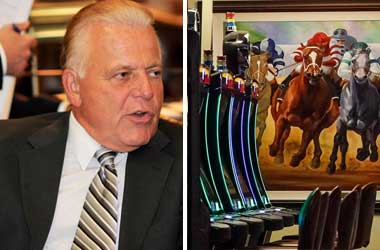 Summary:
Summary:
- SCR14 would create an Atlantic City casino consortium to run the games.
- The tax rate is set at a high 50% on the new games.
- Larger casinos would receive a higher cut of the profits.
New Jersey Senator Joe Pennacchio is back again with a bill to bring slots to the state’s horse racetracks. The goal of SCR14 is to create a consortium of casinos in Atlantic City to operate the slot machines.
This would create a new stream of income for the state, with a high tax rate set at 50%. The profit distribution from the machines would be based on the Atlantic City casinos. Larger venues would receive a higher profit share.
Untapped Money on the Table
Senator Pennacchio feels that New Jersey is leaving untapped money on the table. Funds from the new games would go directly to the infrastructure of Atlantic City, the horse racing industry, the New Jersey casino consortium, and the state’s taxpayers.
The measure already has support among lawmakers and can potentially bring major revenues to the state. Nearby New York has racinos that bring in billions every year. The market adds around $2 billion a year, with taxes coming in just shy of $1 billion.
In New Jersey, the horse racetracks are not full racinos, and they only bring in around $600 million in tax payments, similar to the casino earnings. If slots were available at the tracks, it would immediately boost earnings and help the state bring in even more much-needed revenues for programs and initiatives across Atlantic City and the state.
Lawmakers know that if the New York racinos are doing well, the New Jersey venues would see a similar response. For now, revenues are going to NY and could easily stay in the state if the new gaming option is allowed.
Will It Pass?
It is unclear if the measure will gain any headway and pass into law. The bill does have support with co-sponsors and others who feel the decision is a good one to make. It was smart of Pennacchio to add the casinos in the mix, so there would be no backlash from the larger gaming venues.
The connection to the casinos may be just what is needed to push the bill to the finish line. We will pay close attention to the measure as it is heard in the legislature and see if it can move forward or if it is stopped for any reason.
There is still plenty of time for the bill to be discussed and changed to have a chance to become law. New Jersey lawmakers are known for being open when it comes to new changes within the gambling industry, as New Jersey has one of the most lucrative markets in the US.

